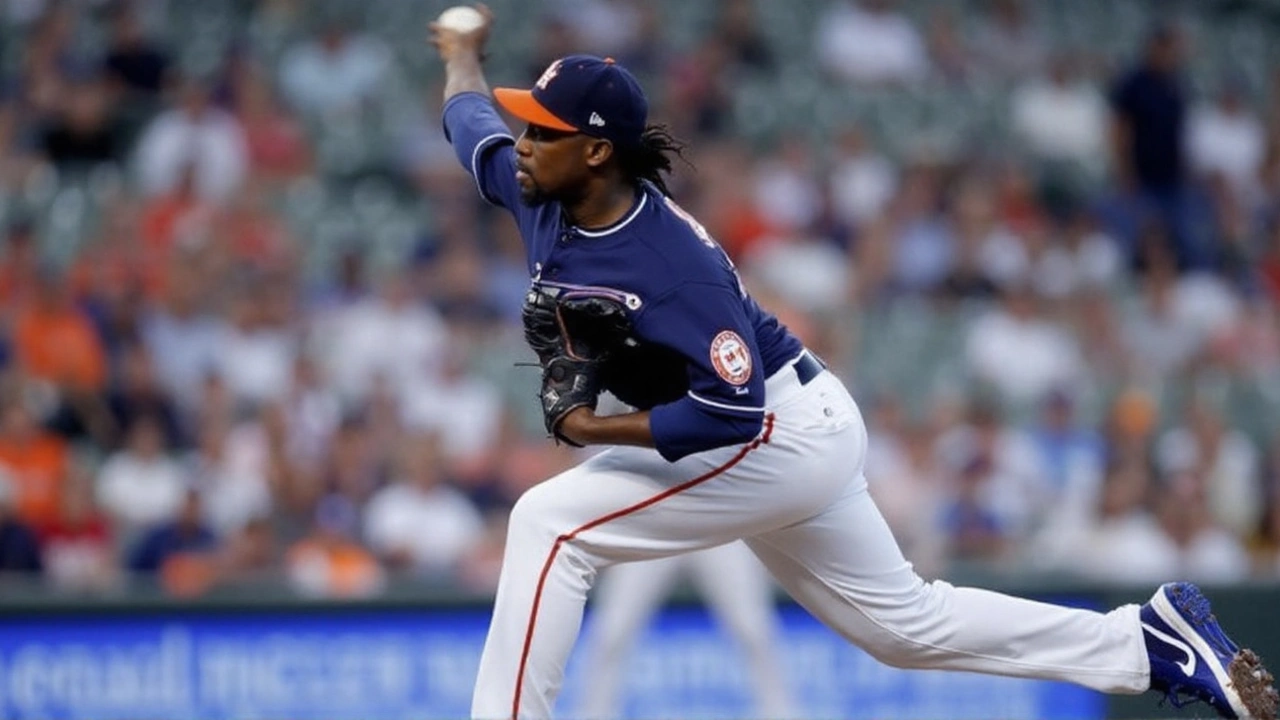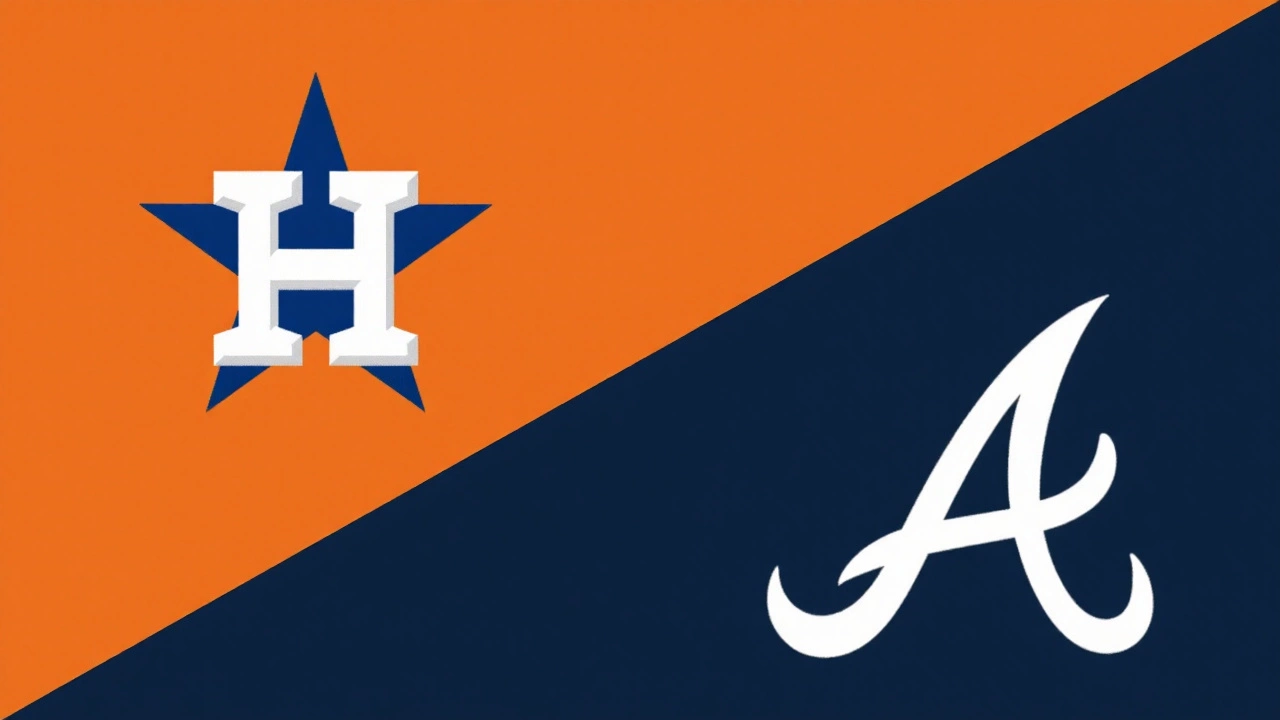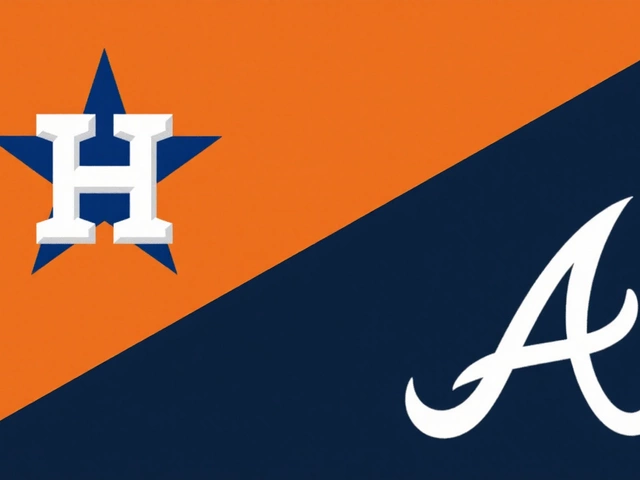Astros-Braves set for a Saturday night read on two teams heading opposite ways
It’s September baseball with real stakes on one side and pride on the other. Houston enters 80-68 and chasing postseason positioning, while Atlanta, at 65-82, is trying to squeeze positives out of the final stretch at Truist Park. First pitch is 7:15 p.m. ET, with the game on FDSSO and SCHN. The market has Houston as a short road favorite, and the focus lands right on the mound matchup that will likely decide it.
Books opened with Houston around -134 to -136 on the moneyline, Atlanta +113 to +116. On the run line, it’s the standard split: Astros -1.5 priced at roughly +125 to +126, Braves +1.5 at about -150 to -152. The total sits at 8.5 runs, with the over toggling between -102 and -120 and the under ranging from -120 back to even money, depending on the shop. If you’re newer to MLB odds, that run-line price tells you the market gives a modest boost to Atlanta to keep it within a run at home, but sees Houston as likelier to win outright.
The pitching shapes the board. Hunter Brown (11-7, 2.25 ERA, 190 K) has been a problem for hitters all season, and the Astros are 16-12 against the spread when he starts. When Houston has been the moneyline favorite with Brown on the hill, they’ve cashed 57.1% (12-9), which matches what you’d expect from a top-rotation arm on a contender. The one wrinkle? Brown hasn’t solved the Braves yet in his limited looks: a 0-1 mark with a 5.06 ERA and 10 strikeouts in his career against them.
Atlanta counters with Bryce Elder (7-9, 5.35 ERA), a sinker-first righty who leans on grounders and weak contact when he’s right. The Braves’ against-the-spread record in Elder’s starts (15-9 when a spread is listed) suggests he often keeps games tighter than the moneyline implies. Still, as a dog with Elder on the mound this year, Atlanta is 5-8, which mirrors his wider results: if the ball leaks up or the slider flattens, innings can unravel quickly.
Offensively, the stat lines draw a narrow gap. Houston is batting .252 as a team with a .318 on-base and .400 slugging. Jose Altuve leads the hit column (145) and has driven in 70, while Jeremy Peña has been a steady table-setter. The middle-of-the-order punch remains the differentiator for Houston; when they string quality at-bats and stay within the zone, they tend to force starters into early mistakes.
Atlanta sits at .242/.316/.391 and has relied on Matt Olson’s production (151 hits, 81 RBI) with support from Ozzie Albies and Michael Harris II (a combined 268 hits, 144 RBI). The run prevention side has been shakier for the Braves—staff ERA 4.46, WHIP 1.31—so they often need crooked numbers to win the types of games Houston usually controls with pitching and depth.
The overall staff numbers matter because Brown often pushes opponents into swing-and-miss zones. He can hold velocity deep into outings, pairing a heavy fastball with a tight-breaking slider and a power curve, and he’s not afraid to challenge inside. That profile is built to neutralize lineups that chase or expand. Atlanta’s path is about patience—making Brown pile up pitches and forcing two-strike mistakes. Keep the strikeouts manageable, and you’ve got a ballgame. Give him quick strikeouts, and you’re staring at six efficient innings.
Elder’s blueprint is different and fairly binary: sinker below the knees for grounders and early-count contact, then a slider he can land for strikes. Houston can crack that code if they’re selective and lift the ball; if Astros hitters stay off the edge and get the ball in the air, Elevate vs. Sinker is a tough matchup for the pitcher in a hurry. But if Elder is dotting and the infield is busy? He’s good at making an inning disappear.
Zoom out to the bullpens and game script. Houston’s staff ERA (3.84) and WHIP (1.22) hint at a tighter run-prevention unit overall. Late in games, that edge tends to show up in traffic management: fewer free passes, better matchups for leverage outs. Atlanta’s 4.46 ERA and 1.31 WHIP aren’t solely on the bullpen, but the composite suggests Houston is a touch more trustworthy in the seventh through ninth—especially in one-run spots.
Totals bettors will notice a cluster of under-leaning angles. The Braves have hit the under on their first five innings team total in 29 of their last 43 home games, a stretch that returned +12.80 units (25% ROI). Houston has hit the under on its full-game team total in 77 of 131, good for +16.50 units (11% ROI). Those aren’t guarantees, but they fit the picture: Brown’s strikeout heft early, Houston’s patience against a sinkerballer that can either hum or hang, and both teams’ recent lean toward lower-scoring stretches to start games.
If you’re thinking player props, Olson popping singles at home has been a quiet trend—he’s gone over his singles line in 16 of his last 25 at Truist Park (+9.00 units, 35% ROI). It tracks with how teams pitch him: fewer center-cut mistakes for power and more away fastballs that he can serve the other way. In a Brown matchup, that might turn into a few deep counts and some backside contact if the timing is there.
So how might this play? Three likely pathways:
- Brown dictates, the game lives under early, and Houston leans on a late add-on run or two for the cover.
- Elder gets grounders, Atlanta keeps it to one big Houston inning, and the Braves’ bats squeak out enough contact to offset the K’s.
- Both starters trade scoreless frames until the third time through, then the bullpens decide it—an area where Houston’s broader run prevention has been steadier.
Market pricing reflects all of that. The run line gives Atlanta respect to keep it within one at home, but the moneyline trusts Houston’s higher ceiling on the mound and steadier run prevention. The 8.5 total with slightly shaded unders mirrors those team-total trends and the matchup: a power arm against a lineup that can swing through fastballs, and a sinkerballer whose best days pull the launch angle rug out from under opponents.
Two smaller wrinkles worth noting. First, Brown’s past trouble vs. Atlanta is a small sample, but it’s there. The Braves tend to stack left-handed and switch bats—Olson, Albies, Harris II—that can make a righty work across the plate. Second, Elder’s game lives on rhythm. If Houston’s right-handed core—think Altuve and Peña setting up the heart—forces him into long at-bats and predictable counts, the damage tends to come in clusters rather than a steady drip.
For viewers, the tempo should be brisk early. Brown attacks, Elder invites contact, and both teams know the first mistake can tilt everything. For bettors, the board is tight but readable: slight edge Houston on the moneyline, a cautious lean to first-five unders based on both team trends, and anytime-prop shoppers keeping an eye on Olson’s singles profile at home.
One more big-picture piece: urgency. Houston’s record tells you where they are on the calendar—every win matters now. Atlanta’s record tells you they’re auditioning pieces, protecting arms, and looking for combinations they trust. That often shows up in how aggressively managers go to the pen, how conservative they are on the bases, and which matchups they prioritize the third time through the order.
Put it all together and you get what the market is saying: Astros vs Braves projects tight, low variance early, with Houston carrying the late-game tiebreakers—strikeouts, command, and a slightly sharper staff profile. First pitch is 7:15 p.m. at Truist Park on FDSSO and SCHN. Eyes on Brown’s pitch count, Elder’s ground-ball rate, and whether Atlanta’s lefty bats can nudge the game out of Houston’s comfort zone.

Key numbers and notes to keep handy
- Moneyline: Astros -134 to -136; Braves +113 to +116
- Run line: Astros -1.5 (+125 to +126); Braves +1.5 (-150 to -152)
- Total: 8.5 (Over -102 to -120; Under -120 to +100)
- Probables: Hunter Brown (HOU) vs. Bryce Elder (ATL)
- Astros team slash: .252/.318/.400; Staff ERA/WHIP: 3.84/1.22
- Braves team slash: .242/.316/.391; Staff ERA/WHIP: 4.46/1.31
- Trends: ATL first-five team total under in 29 of last 43 home games (+12.80 units, 25% ROI). HOU team total under in 77 of 131 (+16.50 units, 11% ROI). Olson singles over in 16 of last 25 home games (+9.00 units, 35% ROI).
All lines referenced are ranges reported Saturday and can move. If you’re playing the board, price shop. If you’re just watching, you’ve got a clean matchup: a strikeout ace, a sinkerball counterpunch, and two lineups that know exactly what kind of game they need to win.

